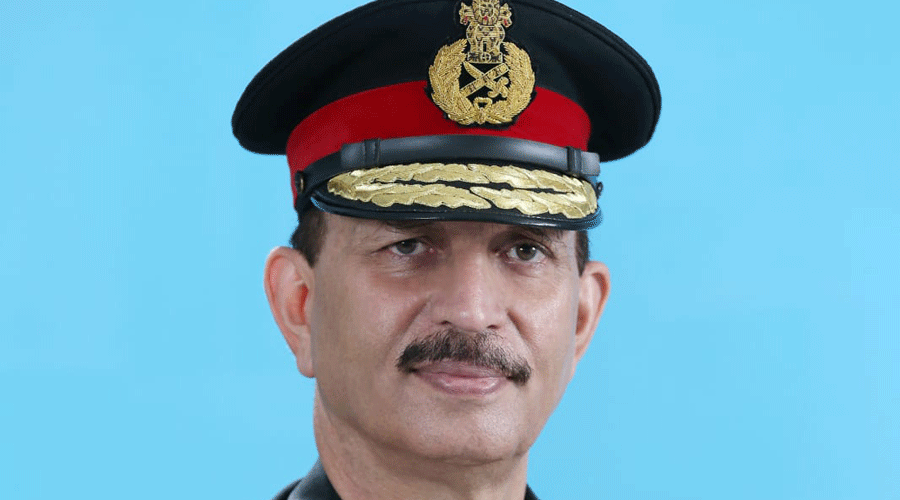The northern army commander, Lt Gen. Y.K. Joshi, on Saturday said the army would “continue all efforts to restore status quo ante along the LAC”, the statement assuming significance against the backdrop of the no-intrusion claim by Prime Minister Narendra Modi.
This is the first time an army commander has officially spoken about “restoring status quo ante” along the Line of Actual Control, which entails that the Chinese have occupied Indian territory.
Modi had on June 19 said: “Neither has anyone intruded into our frontier there, nor is any intruder there, nor is any of our posts occupied by someone else.”
The Prime Minister never retracted the statement, apart from his office issuing a clarification that he was talking about the post-June 15 position. Since then, government statements on the subject have been riddled with implied contradictions.
Defence minister Rajnath Singh on July 17 said “no power... can touch even an inch of India’s land”, while adding that the progress of the talks suggested “the situation should be resolved” but he could give no “guarantee”.
After the fourth round of military talks on July 15, statements issued by the army and the foreign ministry had avoided explicitly mentioning an Indian demand for restoration of the status quo.
However, the statements had described the disengagement process as “intricate” and “complex”, appearing to imply that India had made such a demand and that China was resisting it.
Joshi’s comment on status quo came in an interview to CNN News 18, where he was asked how long the standoff was likely to continue.
“We shall continue all efforts to restore status quo ante along the LAC. I believe that negotiations and (the) process of disengagement and the commitment of both sides to adhere to the laid-down methodology would dictate the timeline of the standoff,” he was quoted as saying.
Joshi added that “certain commitments” from both sides were necessary for the disengagement process to move ahead.
“There are certain commitments required from the two sides which are essential for the process to move ahead positively. There are certain factors, though, such as territorial integrity of the country, which are not negotiable,” he said. “While we are investing sincerely in this ongoing endeavour to bring about peace along the border, we also remain prepared at all times for any eventuality.”
The 11-week-old standoff has seen four rounds of military-level talks, three meetings of the Working Mechanism for Consultation and Coordination on India-China Border Affairs, and one meeting between the special representatives of India and China.
The third Working Mechanism meeting, on Friday, decided on a fifth meeting of senior military commanders, indicating the process was not progressing according to script.
“I believe the disengagement process cannot be left entirely to the military commanders. It should have been preceded by political intervention at the highest level. The political leadership needs to take control and call for restoration of the status quo,” an army veteran said.
Sources had said the disengagement process seemed to have hit a dead end, with the Chinese reluctant to retreat from their positions at the Pangong Lake, Patrolling Point 17 Gogra and the Depsang Plains as agreed.
A limited pushback has happened at Patrolling Point 14 — site of the June 15 clash in the Galwan Valley that killed 20 Indian soldiers — and Hot Springs, with each side moving back 1.5km to create buffer zones within India-claimed lines.
Security officials and military veterans have expressed concern that a Chinese failure to pull back from friction points could alter the status quo if the standoff dragged on.
“The Chinese have a clear design to alter the status quo at the points where they have dug in since May. The problem has been compounded by their refusal to let our soldiers patrol these India-claimed territories,” a security official attached to the Intelligence Bureau said.
The creation of buffer zones, he said, had thrown up tactical problems as these areas had become out of bounds for Indian soldiers too.
“Although the government said the buffer zones are a temporary measure to avoid immediate friction, the status quo could change if the stalemate continues for a long time, and this is exactly what the Chinese want,” he said.
A ground assessment suggests the Chinese have been controlling the heights near the Pangong Lake, where they have built several structures including a small hospital between Finger 8 and Finger 4.
India claims territory till Finger 8 but the Chinese have advanced 8km up to Finger 4 from their erstwhile position at Finger 8.
“Even at PP14, the Chinese are still camping inside India-claimed lines,” an army veteran said.











